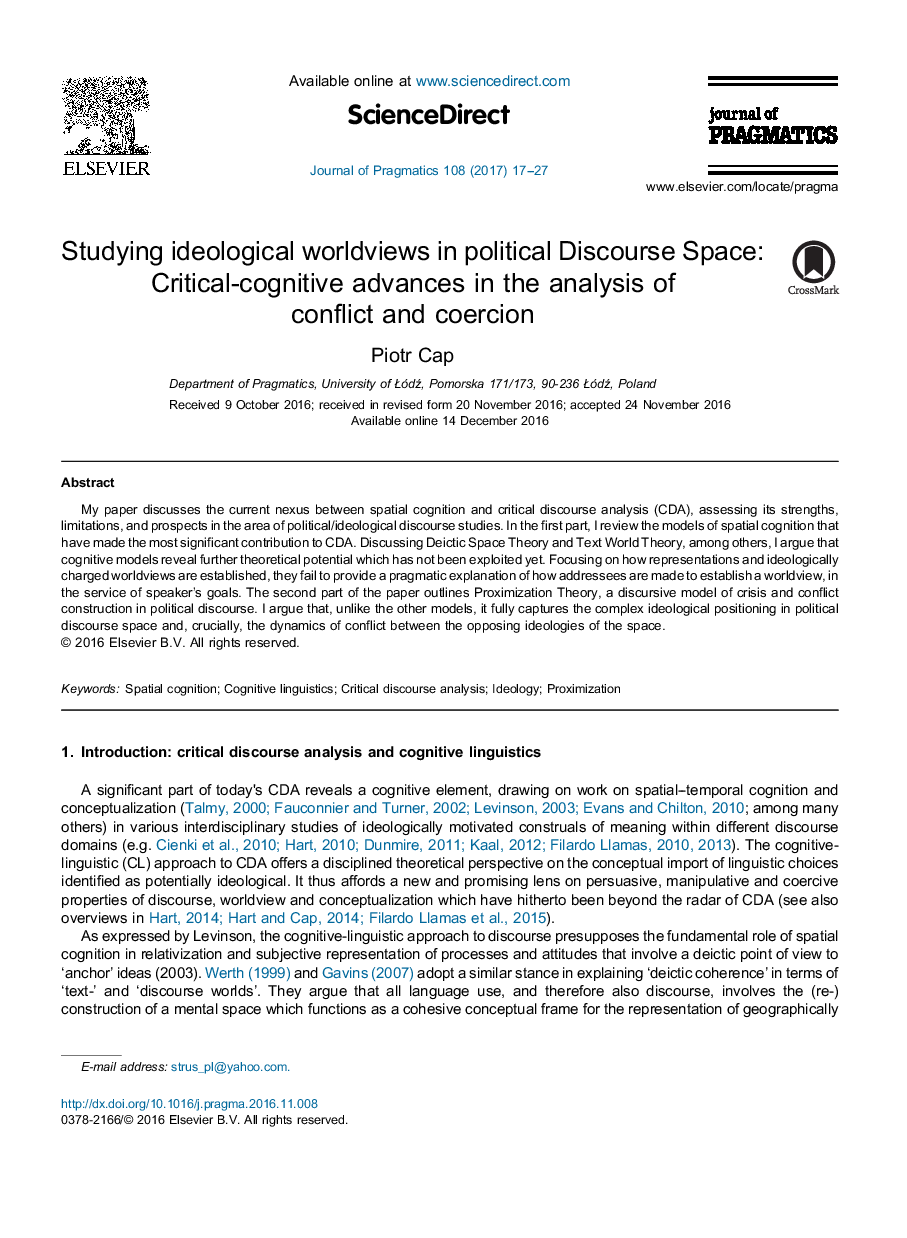| Article ID | Journal | Published Year | Pages | File Type |
|---|---|---|---|---|
| 5042771 | Journal of Pragmatics | 2017 | 11 Pages |
â¢Critically assesses the current nexus between spatial cognition, pragmatics and CDA.â¢Discusses the strengths and limitations of the existing models of political/ideological discourse analysis.â¢Outlines prospects for ideological discourse analysis of conflict and political coercion.
My paper discusses the current nexus between spatial cognition and critical discourse analysis (CDA), assessing its strengths, limitations, and prospects in the area of political/ideological discourse studies. In the first part, I review the models of spatial cognition that have made the most significant contribution to CDA. Discussing Deictic Space Theory and Text World Theory, among others, I argue that cognitive models reveal further theoretical potential which has not been exploited yet. Focusing on how representations and ideologically charged worldviews are established, they fail to provide a pragmatic explanation of how addressees are made to establish a worldview, in the service of speaker's goals. The second part of the paper outlines Proximization Theory, a discursive model of crisis and conflict construction in political discourse. I argue that, unlike the other models, it fully captures the complex ideological positioning in political discourse space and, crucially, the dynamics of conflict between the opposing ideologies of the space.
